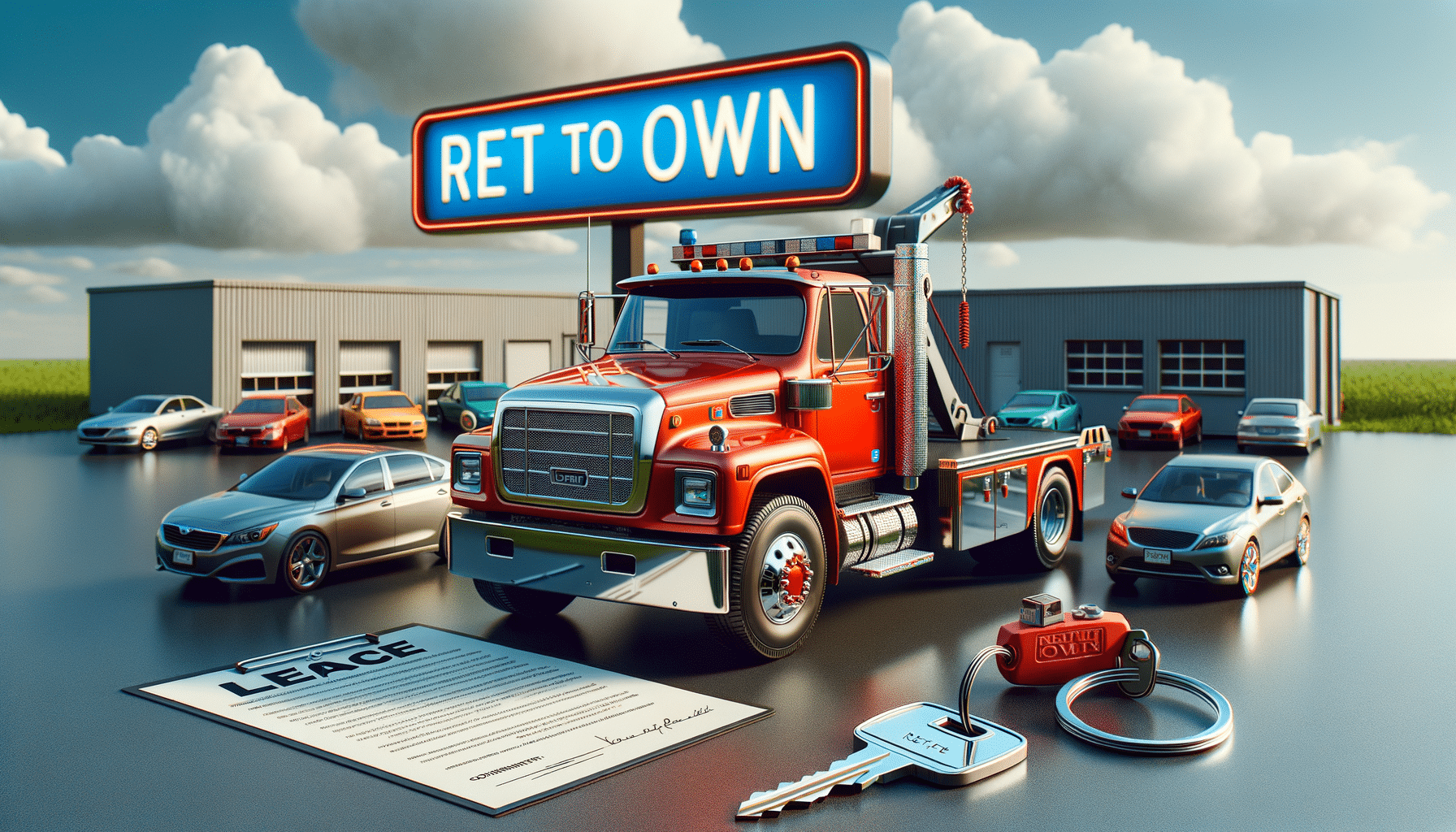
Rent to Own Tow Trucks: What to Know
Introduction to Rent to Own Tow Trucks
The concept of rent-to-own tow trucks is becoming increasingly popular among entrepreneurs and small business owners in the towing industry. This approach provides a flexible and financially viable way to acquire essential equipment without the immediate burden of full ownership costs. Whether you’re starting out or expanding your operations, rent-to-own options allow businesses to access top-quality tow trucks while managing cash flow effectively. This article delves into the nuances of rent-to-own tow trucks, exploring the benefits, considerations, and potential drawbacks.
Benefits of Rent to Own Tow Trucks
Choosing a rent-to-own option for tow trucks offers several advantages. Firstly, it provides financial flexibility. Instead of a hefty upfront payment, businesses can spread the cost over time, enabling better cash flow management. This is particularly beneficial for startups or companies looking to expand their fleet without straining their finances.
Another significant benefit is the opportunity to upgrade equipment. As technology advances, having the latest model can enhance efficiency and service quality. Rent-to-own agreements often allow for upgrades, ensuring your business stays competitive. Furthermore, these agreements typically include maintenance and repair services, reducing unexpected expenses and downtime.
Lastly, the rent-to-own model can improve creditworthiness. Regular payments can positively impact your credit score, making it easier to secure financing for future business needs. Overall, this approach aligns with strategic business growth, offering flexibility and support in navigating the challenges of the towing industry.
Considerations When Opting for Rent to Own
While rent-to-own tow trucks offer numerous benefits, it’s crucial to consider several factors before committing. One of the primary considerations is the total cost. Although monthly payments may seem manageable, the overall cost of the truck can be higher than purchasing outright. It’s essential to evaluate the long-term financial impact and ensure it aligns with your business goals.
Another factor is contract terms. Understanding the specific terms and conditions of the rent-to-own agreement is vital. This includes knowing the duration of the contract, interest rates, and any penalties for early termination or missed payments. Transparency in these areas can prevent future misunderstandings and financial strain.
Additionally, consider the truck’s specifications. Evaluating the size, mileage, towing capacity, and intended long-term use can help align your choice with your workload, business plans, and goals. Making an informed decision based on these factors will ensure that the truck meets your operational needs effectively.
Potential Drawbacks
Despite the advantages, there are potential drawbacks to the rent-to-own approach. One of the main concerns is the risk of higher overall costs. As mentioned earlier, the cumulative payments over the contract period can exceed the truck’s market value, leading to a substantial financial commitment.
Another drawback is the potential for restrictive terms. Some agreements may include clauses that limit the truck’s usage or impose penalties for excessive wear and tear. It’s essential to review these terms carefully and assess whether they could hinder your business operations.
Finally, the lack of ownership until the end of the contract can be a disadvantage. Unlike traditional purchases, where the asset becomes yours immediately, rent-to-own agreements delay ownership, which might affect your business’s asset portfolio and equity.
Conclusion: Is Rent to Own Right for You?
Deciding whether rent-to-own tow trucks are right for your business depends on several factors, including your financial situation, business goals, and operational needs. This model offers flexibility, access to modern equipment, and manageable financial commitments, making it an attractive option for many in the towing industry.
However, it’s crucial to weigh the potential drawbacks and ensure that the agreement terms align with your long-term business strategy. By carefully evaluating the benefits and considerations outlined in this article, you can make a well-informed decision that supports your business’s growth and success in the competitive towing market.


